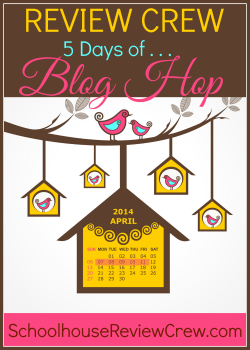Over the last year I have come to realize that Sir N is in need of some coaching in the area of Language Arts. In the year ahead I would like to continue working on strengthening his writing skills through copy work and hand writing practice.
Definition
What is the definition of Language Arts? It is the study of grammar, composition, spelling and (sometimes) public speaking.
In 2015
Composition
We will be continuing with WriteShop Primary this year. This program is an excellent way to introduce composition to reluctant writers and primary school aged students. I like doing the projects with him because they are not simply busy seat work they specifically designed to be a creative way to help him remember the new things he is learning each time we do WriteShop. It's ultimate purpose is for Sir N to learn that Writing = Fun!

Spelling
Last year I began using Logic of English with Sir N and was really impressed with his progress. This year we will continue our lessons with the goal of completing the program.

Vocabulary
This is not synonymous with spelling. We will continue to work though Spelling Workout starting with book B this year. I am also compiling a list of classical books we will be using as read alouds throughout the year ahead.
Grammar
I haven't yet settled on a grammar program. I have two books I'm considering. The first being English for The Thoughtful Child by Mary Hyde OR Karen Andreola's Simply Grammar: An Illustrated Primer.
Narration
This is something I want to focus more on this year with Sir N. There are so many incredible benefits to the student in developing this skill.
- Narration Adheres Vocabulary to the Mind - CMC Page 167
- Narration strengthens and challenges all the powers of mind. Attending, remembering, visualizing, comprehending, synthesizing (seeing the whole from the parts), and articulating. - CMC Page 115
- Helps the student to organize their thoughts with ease
- Narration helps a child to train his/her mind to "sort, arrange, correlate, select, reject and classify" information CMC Page 114
- Narration develops the power of self expression and forces the child to use his own mind and form his own judgement. CMC Page 115
On this blog
We enjoy great literature and are trying to follow a Charlotte Mason approach with reading twaddle free literature. I share a new book each week on a Tuesday called Tuesday's Treasures. Be sure to come back each Tuesday for a new book.
- Ode to English Plurals
- 5 Days on Teaching Children to Read
- Why the english language is hard to learn
- 15 Grammar Goofs
For more thoughts on language arts click on any of the graphics below
We have some wonderful homeschool bloggers sharing their thoughts and inspiration on Language Arts and your homeschool. Be sure to grab a cup of coffee / tea and take some time over the week ahead to read over these posts
- Building a Foundation of Words by Susan @ Homeschooling Hearts & Minds
- Bible-Based Language Arts Resources by Tauna M @ Proverbial Homemaker
- Relaxed Homeschooling: Language Arts in the Early Elementary Years by Brittney @ Mom's Heart
- Loving Books and Words by Sarah@Delivering Grace
- 5 Language Arts Resources We Love by Becky @ Milo & Oats
- Teaching Reading at Home: A Tale of 5 Readers by Kristen H. @ Sunrise to Sunset
- A More Simplistic Approach to 7th Grade Language Arts by Christy @ Unexpected Homeschool
- Language Arts Reading for Delight-Directed Learning by Susan @ The Every Day of Education
- How To: Spelling Dictation by Heather @ Only Passionate Curiosity
- The World of Words in our Homeschool by Joelle @ Homeschooling for His Glory
- Unschooling and Words, Words, Words by Nicole @ Schooling in the Sun
- Learning With Literature and Language Arts Resources by Leah @ As We Walk Along the Road
- Words and More Words! by Michele @ FamilyFaithandFridays
- Language Arts in Our Homeschool (2014 - 2015) by Laura O @ Day by Day in Our World
- Our curriculum choices ~ Language Arts by Renata @ Sunnyside Farm Fun
- The 2015 Virtual Curriculum Fair ~ Language Arts in Our Homeschool by Jennifer @ A Glimpse of Our Life
- Loaded Pistols: Virtual Curriculum Fair Playing with Words by Lisa @ Golden Grasses
- A Renewed Focus on Reading Aloud by Debra @Footprints in the Butter
- Language Arts in our Classical / Charlotte Mason Homeschool by Sharra @ The Homeschool Marm
- Logic of English Foundations: The Grand Prize Winner of Phonics by Chelli @ The Planted Trees
- A Sentence a Day Teaches Grammar the Fun Way by Amy A @ One Blessed Mamma
- Tackling Language Arts by Jacquelin @ A Stable Beginning
- Middle School Monday - Lightning Literature and Composition by Kym @ Homeschool Coffee Break
- The Great Grammar Discovery by Laura @ Four Little Penguins






















